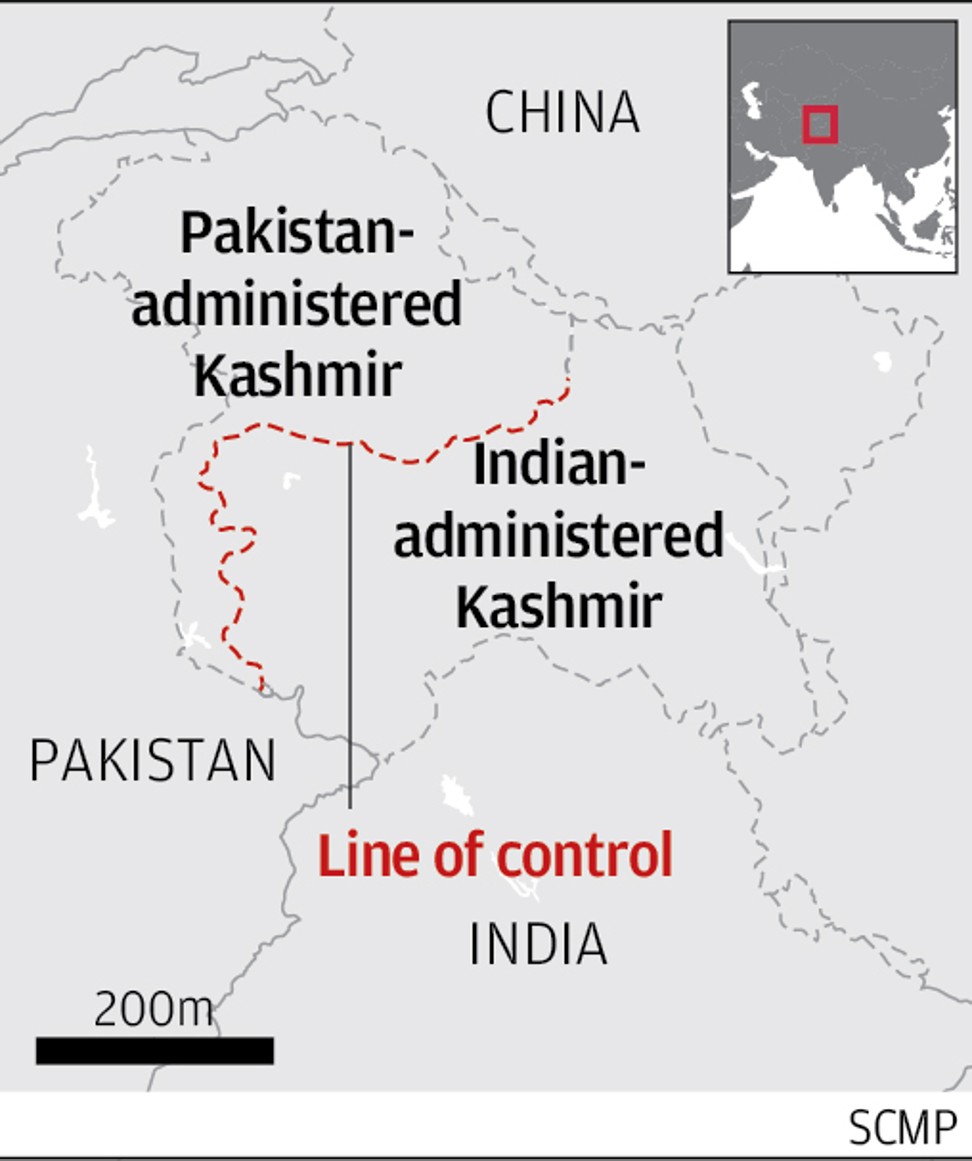
Pakistan appeals to China for help easing conflict with India
- Foreign Minister Shah Mehmood Qureshi makes late night call to Chinese counterpart Wang Yi as tensions mount in South Asia
- Wang appeals to both sides to ‘exercise restraint’ to prevent tensions escalating
Pakistan has approached China to mediate in its conflict with India, saying it hopes Beijing can play a constructive role in easing the tensions.
The request was made late Wednesday night in a phone call from Pakistan’s Foreign Minister Shah Mehmood Qureshi to his Chinese counterpart Wang Yi, according to a statement published on the Chinese foreign ministry’s website on Thursday.
Qureshi told Wang about the latest developments in the conflict and expressed his hope that Beijing would continue to play a role in helping to resolve it, the statement said.
Wang was quoted as saying he hoped “both Pakistan and India would exercise restraint to prevent an expansion of the situation”, reiterating comments he had made the previous day.
Kashmir conflict explained: what brought Pakistan, India to the brink of war
China’s defence ministry spokesman Ren Guoqiang said on Thursday that India and Pakistan should prevent any further escalation of the conflict.
A harmonious relationship between the two countries would serve them both and was important for peace in the region, he said.
China has made repeated appeals to Islamabad and New Delhi to hold dialogue to maintain regional peace and prevent their long-running dispute from worsening.
Earlier on Wednesday, Wang met India’s Foreign Minister Sushma Swaraj on the sidelines of trilateral talks with their Russian counterpart Sergey Lavrov in the east China city of Wuzhen.
“China is concerned with the tense situation facing South Asia,” Wang said. “As a mutual friend to India and Pakistan, China hopes both sides can exercise restraint to avoid an escalation of tensions.”
He said also that the territorial and sovereign rights of all countries should be respected.
Tensions between the neighbours remained high on Wednesday, with Pakistan’s Prime Minister Imran Khan warning in a television address that a miscalculation could lead to nuclear war.
Both Delhi and Islamabad have ordered air strikes over the past two days – the first time two nuclear-armed powers have done so – while ground forces have exchanged fire in more than a dozen locations.
Pakistan said it downed two Indian jets in its airspace and captured a pilot, while India confirmed the loss of one of its planes and said it had shot down a Pakistani fighter jet.
In a sign of the deepening crisis, Pakistan closed its airspace “until further notice”. At least six airports were closed in India, and a vast area north of Delhi was closed to civilian flights.
China calls on India and Pakistan to ‘exercise restraint’ after air strike
The Press Trust of India reported that Pakistani fighter planes crossed at Poonch and Nowshera, two locations on the Indian side of the de facto border, but were repelled.
The incursion came a day after Indian warplanes carried out a strike in Pakistan on what Delhi said was a militant training camp, in retaliation for a February 14 suicide bombing in Kashmir that killed 40 Indian troops.
The attack prompted renewed criticism in India over Delhi’s approach to improving ties with Beijing.
Imran Khan warns of nuclear war with India
The two countries have often had flare-ups over their disputed border but a summit between Chinese President Xi Jinping and Indian Prime Minister Narendra Modi last year was said to have “reset” relations.
Following the attack – for which Pakistan-based militant group Jaish-e-Mohammad claimed responsibility – there have been calls for a tougher stance on China. For years, India has blamed China for blocking its effort to have the group’s founder, Masood Azhar, listed as a terrorist – a position most analysts say stems from Beijing’s allegiance to Islamabad.
Additional reporting by Catherine Wong and Reuters.


